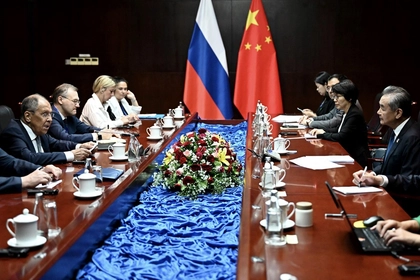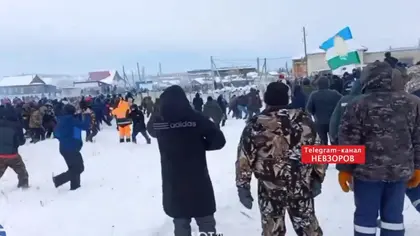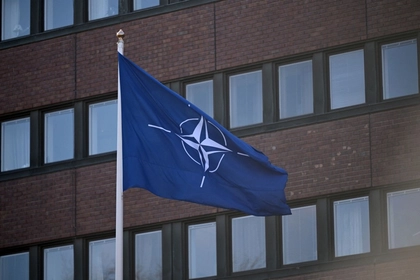Protesters and riot police were injured Wednesday when clashes erupted in a small town in Russia's central Bashkortostan after an activist was sentenced to four years in prison.
Street protests are a rarity in Russia, which has clamped down on dissent since launching its military offensive in Ukraine and has strict anti-demonstration laws.
JOIN US ON TELEGRAM
Follow our coverage of the war on the @Kyivpost_official.
Crowds of men in the town of Baymak fought with riot police in temperatures hovering around -20 Celsius (-4 Fahrenheit), social media footage showed.
Russia's Investigative Committee said both police and protestors sustained injuries in the confrontation.
"During the mass riots, which were accompanied by violence including the use of objects as weapons, several people were injured, including members of law enforcement," it said in a statement on Wednesday.
The independent OVD-Info rights group, which monitors protests across Russia, said police used tear gas to disperse the demonstrators and that dozens had been detained.
The Investigative Committee said it had opened criminal cases into "mass rioting" -- a crime that carries a maximum penalty of 15 years in prison -- and for the violence against a public officer, punishable by up to five years in prison.
The protests were sparked after a court in the town of around 17,000 people sentenced an eco-activist and campaigner for the protection of the Bashkir language -- Fail Alsynov -- to four years in prison for "inciting hatred".

Russia, China FMs Meet as ASEAN Talks Get Underway in Laos
The ruling was issued behind closed doors.
Alsynov was accused of making a racist comment in a speech to a village council meeting against gold digging. He insists his words were mistranslated from the Bashkir language.
The SOTA opposition Telegram channel showed a video of a handcuffed Alsynov still inside the courtroom after the verdict on Wednesday, protesting his innocence.
"I do not admit my guilt," Alsynov said, vowing to appeal the ruling.
"I always fought for justice, for my nation, for my republic."
The police cracking down on protesters in #Baskortostan. pic.twitter.com/f6Bx3PNQHe
— olexander scherba🇺🇦 (@olex_scherba) January 17, 2024
According to SOTA, the clashes started after protesters blocked the court building in a bid to try to stop Alsynov from being taken away.
Videos shared on social media showed men washing their eyes with water after reports police used tear gas in the freezing temperatures outside.
Anticipating a public response, police had on the eve of the verdict warned people not to take part in "illegal public gatherings".
Alsynov's case had already sparked protests of several hundred people in Baymak earlier this week.
The head of the local interior ministry, Rafail Divayev, urged demonstrators to back down on Wednesday.
"Mass riots threaten our country's national security, therefore the punishment under this article is quite serious," the state-run RIA Novosti news agency quoted him as saying.
"I advise you to come to your senses and not ruin your life."
Russian media report that about 10,000 people are gathered by the court building in Bashkortostan. https://t.co/2HYJn61SaE pic.twitter.com/vQEP4RqoWa
— Anton Gerashchenko (@Gerashchenko_en) January 17, 2024
The protests are some of the country's biggest demonstrations since Russia sent troops into Ukraine and escalated a decade-long crackdown on opposition to the Kremlin.
Some of the protesters called for the dismissal of the local governor, Radiy Khabirov, who had accused Alsynov of using racist language.
In the speech that resulted in the charges, Alsynov had used two words in Bashkir that were translated into Russian as "black people".
In Russia, the phrase is often used to pejoratively describe people from Central Asia and the Caucasus. Alsynov said he was referring to poor people.
The activist was last year fined for criticising Moscow's offensive in Ukraine online, saying it was not in Bashkortostan's interests.
According to local media, Alsynov called Russia's mobilisation drive a "genocide of the Bashkir people" and said Moscow's offensive "was not our war".
Multiple independent analyses have shown a disproportionately high number of military call-ups and fatalities among Russia's minority national groups, including from Bashkortostan.
You can also highlight the text and press Ctrl + Enter






